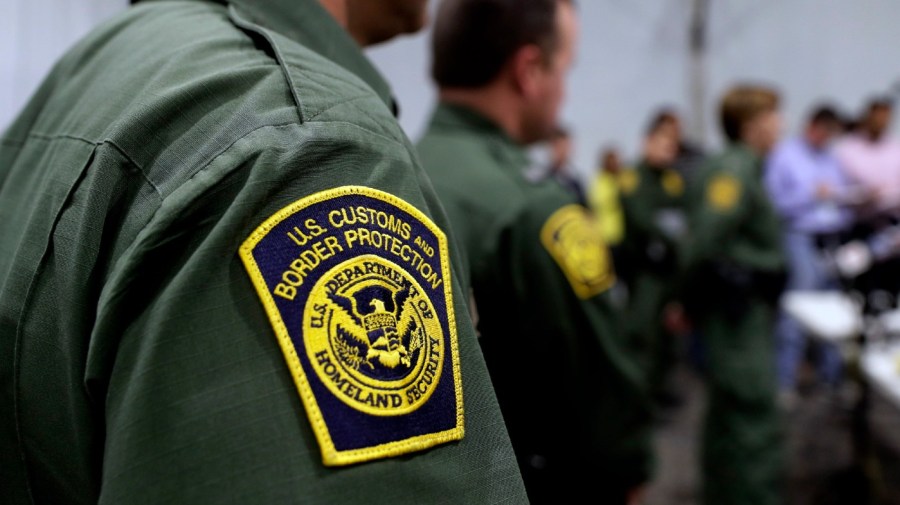
One thing both Republicans and Democrats can agree on is that our border is in crisis.
Massive influxes of migrants, coupled with staffing issues within agencies responsible for protecting the border, pose a challenge of unprecedented scale. To ensure greater border security, the U.S. needs policies that will revamp Border Patrol’s recruitment process and properly staff its force.
The challenges facing border patrol are daunting. A Department of Homeland Security audit found that 88 percent of border stations reported understaffing. Additionally, the report identified a decline in mental health, with suicide rates for agents skyrocketing as the increasing burdens of an already intense job become too much to bear.
Low levels of staffing and spikes in migration force many agents to redirect their focus from security operations to managing humanitarian challenges. In some sectors, up to 60 percent of agents are redirected from their primary security missions to aid migrants, providing transport to processing centers, shelters and hospitals. Much of this work also includes handling paperwork, caring for families, and providing security at processing facilities.
Agents must make difficult choices, weighing questions of national security against preventing an all-out humanitarian crisis on the border. Many report feeling that they are not carrying out the agency’s mission, and that this is not what they signed up for when they wanted to protect and serve the nation. Indeed, this dissatisfaction among agents is among the leading causes for individuals leaving the force.
Agents report increases in “known gotaways,” or illegal migrants who encounter Border Patrol yet escape into the United States. Cartels take advantage of understaffing and weaponize migrant groups to aid smuggling operations. The lack of proper screening and identification allowed men affiliated with terrorist organizations to cross our Southern border. Armed vigilante groups are mobilizing, taking matters into their own hands by “patrolling” the border.
Though hiring more agents seems like an obvious solution, efforts from both the Trump and Biden administrations were barely able to sustain current personnel levels as many Border Patrol agents retire or resign. The Biden administration pushed Congress for funding to hire 1,500 additional agents, as it has barely maintained a force of a little over 19,000 agents, with early retirements soaring. Likewise, the Trump administration set hiring goals of 25,000 agents but struggled to reach 20,000 agents by the end of his term.
In addition to the challenges that come with increased migration under the Biden administration, remote working conditions, strict security clearance requirements and an overall tight job market pose serious challenges to recruiting. Not to speak of classic government inefficiency: In 2019 DHS terminated a $60 million contract with recruiting company Accenture that had only resulted in 51 hires. Even the Biden administration’s $30,000 signing bonuses did not incentivize new hires.
Until more serious action is taken to address the migrant crisis, the heart of the challenge facing Border Patrol, steps must be taken to aid Customs and Border Protection in securing the border.
Currently roughly two-thirds of Border Patrol recruits do not make it past the hiring process due to failing the polygraph test required for their clearance. In the midst of a staffing crisis, the government must consider whether having a top-secret clearance should be a priority for agents. The hiring process at Immigration and Customs Enforcement, in contrast, only requires polygraphs for applicants who indicate risk factors in their initial background screening.
Furthermore, addressing burn-out, which is driving many to leave the force, is critical to retaining agents. Creative solutions to relieve the burdens on Border Patrol, such as collaborating with local law enforcement and investing in technology solutions to assist with Customs and Border Protection’s mission, can be explored to this end. Additionally, the government should do more to recognize and acknowledge the challenges facing Border Patrol agents during the ongoing crisis.
Addressing hiring issues now is critical for addressing the border crisis, because staffing issues are likely to become even more dire in the future. A mandatory retirement policy instituted in 2008, which requires officers over the age of 57 with 20 years of service to retire, comes into effect in 2028.
In a new era of migration, the U.S. cannot keep turning to the same playbook. We require creative solutions. The Border Patrol force is essential to preserving our national security, and the U.S. must confront its issues seriously. With bipartisan support around hiring more agents, a burdensome recruitment process cannot stand in the way.
Katherine Camberg is a graduate student at Georgetown’s Security Studies Program.

